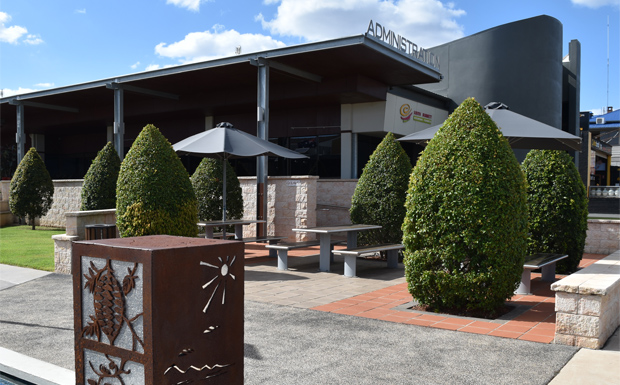January 24, 2017
by Anne Miller
President Donald Trump’s signature on Tuesday which pulled the United States out of the Trans-Pacific Partnership Agreement could have long-term consequences for rural Queensland.
One Nation supporters, Nick Xenophon and unionists – odd bedfellows, indeed – have been strongly opposed to the TPP.
Farmers, in comparison, have been cautious supporters.
While the TPP was still alive, Member for Maranoa David Littleproud put out a press release that was an impassioned plea supporting the beleaguered international trade agreement.
If Mr Littleproud’s analysis is right, Mr Trump’s “tearing up” of the agreement could be a serious blow to Queensland rural and regional economies.
“Produce from Maranoa is world-renowned for being clean and green so it makes sense to harness the value of our quality product and market it on the world stage through significant international trade deals, like the Trans-Pacific Partnership Agreement, to grow regional economies,” Mr Littleproud said.
“In Maranoa, under the TPP the agricultural and horticultural industries (were) set to be the biggest winners from tariff reductions on more than $4.3 billion of Australia’s agricultural export products, with preferential access or tariff reductions on a further $2.1 billion of our agricultural exports including beef, dairy, cereals and wine.
“The fact is that while Australia has a population of 24 million people, we produce enough food for 75 million so without international trade opportunities – providing us with access to new markets, willing to pay the right price for our quality product – it will destroy regional communities right across Maranoa.
“This year has already kicked off major tariff reductions into China and January 15 marked two years since the Australia-Japan Economic Partnership Agreement came into force, which is delivering competitive advantages for our local businesses as Japan is our second-largest export market.”
Before the ink had dried on Mr Trump’s signature, Federal Trade Minister Steve Ciobo was talking about a new version of the TPP that was “12 minus 1”.
The other countries involved in the original TPP are Australia, Brunei, Chile, Malaysia, New Zealand, Peru, Singapore, Japan, Vietnam, Mexico and Canada.
Mr Ciobo said he had already had talks with some of these countries, and he told the ABC the agreement could also be reformulated to include other countries such as China and Indonesia.
For the sake of our rural economy, let’s hope Prime Minister Malcolm Turnbull is right – either the United States could have a change of heart or that the TPP will go forward in a new form – rather than the naysayers who have declared the TPP “dead”.
* * *
What Queensland farmers could have gained from the TPP (according to Mr Littleproud):
- Beef: Significant reductions and elimination of tariffs on beef and beef products into Japan (building on the Australia-Japan Economic Partnership Agreement); elimination of tariffs on beef / beef products into Mexico and Canada over 10 years. 56 per cent of Australia’s beef exports go to TPP markets. Beef is Australia’s largest global agricultural goods export, worth $8 billion in 2015-16.
- Horticulture: Elimination of all tariffs into Canada on entry into force. Total Australian horticulture exports were valued at $4 billion in 2015-16 and 19 per cent of these exports (valued at $764 million) went to TPP countries.
- Pork: Elimination of Mexico’s 20 per cent tariff on entry into force and the elimination of all Malaysian pork tariffs in 15 years. In 2015-16, 72 per cent of Australia’s pork exports went to TPP countries, valued at $92 million.
- Raw wool: Elimination of tariffs into TPP markets on entry into force. In 2015-16, total Australian exports of wool were valued about $2.9 billion, wool exports to TPP countries were valued about $77 million.
- Sheepmeat: Elimination of tariffs on entry into force for all TPP markets (not Mexico). Australia exports about $1.1 billion in lamb and mutton to TPP markets, 45 per cent of all sheep meat exports.
- Wheat and barley: Mark-up reduction into Japan by 45 per cent within eight years. Total Australian exports of cereals and grains were valued about $7.2 billion in 2015-16, around 18 per cent (or $1.3 billion) of which was exported to TPP countries.
- Cotton: All tariffs on Australian cotton exports would have been be eliminated under the TPP, with most eliminated from entry into force. Total Australian cotton exports were valued about $1.3 billion in 2015-16 and 18 per cent of cotton exports (valued at $223 million) were sent to TPP countries.
- Wine: Elimination of tariffs into key export market in Canada on entry into force and tariff elimination into Vietnamese markets. Total Australian wine exports were valued at $2.2 billion in 2015-16, and 42 per cent of these exports (valued at $925 million) went to TPP countries.
- Dairy products: Tariff elimination, reductions and new quotas into the US and Japan.
























